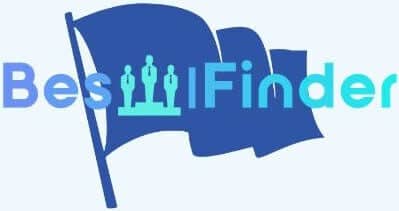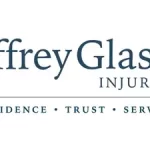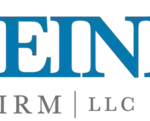Reverse mortgage Ohio is a unique type of loan that allows homeowners over 62 to pay off a portion of their home equity. This type of loan is available in all 50 states, including Ohio. A reverse mortgage Ohio is designed to help seniors complete their retirement income, pay medical bills, and cover other unexpected expenses. In this article, we’ll understand the features of reverse mortgage Ohio, including eligibility requirements, pros and cons, and getting a reverse mortgage Ohio in the state.
In this article, we will examine what a reverse mortgage Ohio is, eligibility for a reverse mortgage Ohio, pros and cons of reverse mortgage Ohio, Ohio-specific regulations and protections, steps to obtain a reverse mortgage Ohio, alternatives to reverse mortgage Ohio, finding the right reverse mortgage Ohio provider, and finally the top companies that provide the reverse mortgage Ohio.
- What is a Reverse Mortgage?
- Eligibility for a Reverse Mortgage Ohio
- Pros and Cons of Reverse Mortgage Ohio
- Ohio-Specific Regulations and Protections
- Steps to Obtain a Reverse Mortgage Ohio
- Alternatives to Reverse Mortgage Ohio
- Finding the Right Reverse Mortgage Ohio Provider
- Top Companies that Reverse Mortgage Ohio
- Conclusion
- Reverse Mortgage Ohio FAQ
What is a Reverse Mortgage?
A reverse mortgage is a financial product designed for homeowners at least 62 years old who want to convert a portion of their home equity into cash without selling their home or making monthly mortgage payments. It allows older homeowners to access the equity they have built up in their homes over the years, providing them with additional income during retirement or when facing financial challenges.
Here are the key points to understand about reverse mortgage:
- Eligibility: To qualify for a reverse mortgage, homeowners must meet certain criteria, including being at least 62 years old, owning their home outright or having a low mortgage balance that can be paid off with the proceeds from the reverse mortgage, and living in the home as their primary residence.
- Types of Reverse Mortgages: The most common type of reverse mortgage is the Home Equity Conversion Mortgage (HECM), insured by the Federal Housing Administration (FHA). Private lenders also offer proprietary reverse mortgages, but HECMs are more prevalent.
- Repayment Grace Period: If the last borrower permanently moves out of the home, there’s a grace period during which the loan remains due but not immediately payable. This grace period allows heirs to decide how to handle the loan and the property.
- Loan Repayments: Unlike traditional mortgages, where borrowers make monthly payments to the lender, reverse mortgages allow homeowners to receive payments from the lender. The loan becomes due when the last reverse mortgage borrower sells the home, moves out permanently, or passes away. At that time, the homeowner or their heirs must repay the loan, usually by selling the home. If the home is sold for more than the reverse mortgage loan balance, the excess money goes to the homeowner or their heirs.
- Loan Amount: The amount a homeowner can borrow through a reverse mortgage depends on factors like the home’s appraised value, the borrower’s age, interest rates, and the chosen payment option.
- Interest and Fees: Reverse mortgage interest accrues over time, increasing the loan balance. Borrowers are also responsible for paying various fees, including origination fees, mortgage insurance premiums, reverse mortgage appraisal process fees, and closing costs. These costs can be quite substantial, so it’s essential to consider them when evaluating a reverse mortgage.
- Counselling Requirement: Before getting a reverse mortgage, homeowners must undergo counselling with a HUD-approved counsellor. This counselling session helps borrowers understand the terms and implications of the loan and assess whether a reverse mortgage is the right financial option for their situation.
- Impact on Heirs: If the homeowner passes away and the heirs wish to keep the home, they can repay the reverse mortgage or obtain a traditional mortgage to cover the loan balance. Alternatively, they can sell the home, settle the reverse mortgage debt, and keep any remaining proceeds.
- Non-Recourse Loan: One advantage of a reverse mortgage is that it’s a non-recourse loan, which means the borrower or their heirs are not personally liable for any additional loan balance exceeding the home’s value when the loan becomes due.
Reverse mortgages can be a valuable financial tool for eligible seniors who need additional income during retirement, but they also come with risks and considerations. Before deciding on a reverse mortgage, it’s crucial to thoroughly understand the terms, consult with family members or financial advisors, and carefully weigh the potential benefits and drawbacks.
Eligibility for a Reverse Mortgage Ohio
You must meet several eligibility requirements to qualify for an reverse mortgage Ohio. First, you must be 62 and fully own a home or have a substantial net worth. The property must be your primary residence, and you must maintain the property and pay property taxes and homeowners insurance. Your home must be a single-family home, a 2-4 unit property, a condominium, or a manufactured home built after 1976. You must also have sufficient income to cover ongoing maintenance and electricity bills. You must complete a counseling session with a HUD-approved counselor to ensure you understand the terms and obligations of the reverse mortgage Ohio.
It is important to note that a reverse mortgage Ohio is a loan that must be repaid if the last borrower no longer uses the home as his original residence or dies. Additionally, interest and fees accrue on the loan balance over time, reducing your home’s equity. That’s why it’s important to consider whether a reverse mortgage Ohio is the right choice for your financial needs and goals.
Pros and Cons of Reverse Mortgage Ohio
Reverse mortgage Ohio can be an appealing financial option for Ohio seniors seeking to tap into their home equity and secure additional income during retirement. As a specialized loan designed for homeowners aged 62 and older, a reverse mortgage Ohio allows individuals to convert a portion of their home equity into tax-free funds without making monthly mortgage payments. Ohio residents considering this financial product should carefully weigh the potential advantages and drawbacks to make an informed decision that aligns with their unique financial goals and circumstances.
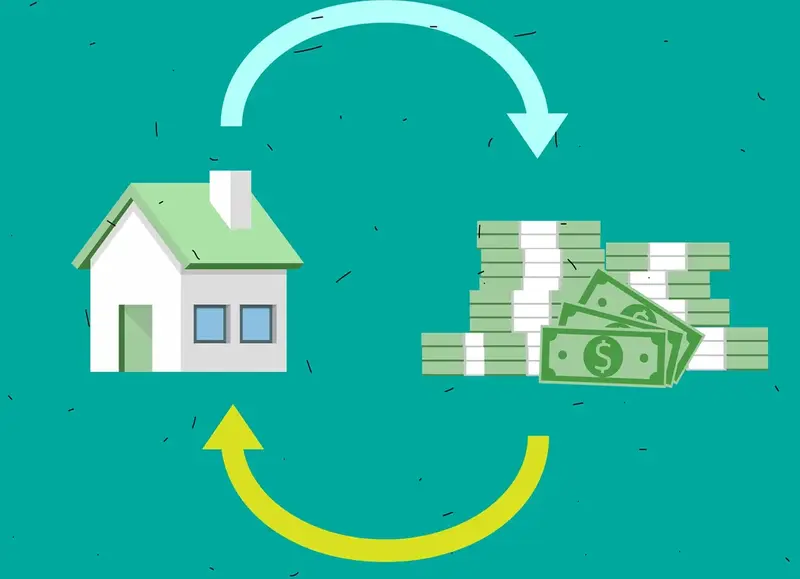
Pros of Reverse Mortgages Ohio:
- Flexible Payment Options: Borrowers can choose from various payment options, including a lump sum, monthly payments, a reverse mortgage line of credit, or a combination of these options, based on their financial needs and preferences. Borrowers can use a reverse mortgage calculator to calculate potential income amounts before taking out a reverse mortgage.
- Supplemental Retirement Income: For Ohio seniors with limited retirement savings, a reverse mortgage Ohio can provide a valuable source of additional income to cover living expenses, medical costs, or unexpected financial needs.
- No Monthly Mortgage Payments: One of the most significant advantages of a reverse mortgage Ohio is that borrowers are not required to make monthly payments. The loan is repaid only when the last borrower permanently moves out of the home.
- Non-Recourse Loan: As with all federally insured reverse mortgages (e.g., HECMs), reverse mortgage Ohio is non-recourse loans. This means that the borrower or their heirs will not be personally liable for any additional loan balance exceeding the home’s value when the loan becomes due.
- Tax-Free Proceeds: The money received from a reverse mortgage Ohio is generally considered loan proceeds and not income, so it is typically not subject to federal income taxes.
Cons of Reverse Mortgages Ohio:
- High Upfront Costs: Reverse mortgages come with significant upfront costs, including origination fees, mortgage insurance premiums, considering reverse mortgage appraisals fees, and closing costs. These appraisal costs can make reverse mortgage appraisal process expensive, especially for those who plan to move or sell the home relatively soon after obtaining the loan.
- Accrued Interest: Over time, the interest on the reverse mortgage Ohio accrues and increases the loan balance. As a result, the homeowner’s equity in the home may decrease, potentially leaving less for the borrower or their heirs when the loan is repaid.
- Impact on Heirs: While a reverse mortgage Ohio can be a useful financial tool for the borrower, it can reduce the inheritance left to heirs. If the loan balance exceeds the home’s value when the borrower passes away or permanently moves out, the heirs may need to sell the home to settle the debt.
- Requirements and Qualifications: To qualify for a reverse mortgage Ohio, the homeowner must be at least 62 years old and meet other specific requirements, such as owning a home as a primary residence and owning as much equity in the property as possible.
- Possible Risk of Foreclosure: If the borrower fails to meet certain obligations, such as maintaining the property or paying property taxes and insurance, the reverse mortgage Ohio could be at risk of foreclosure.
- Impact on Means-Tested Benefits: The proceeds from a reverse mortgage Ohio could potentially affect eligibility for certain means-tested benefits, such as Medicaid or Supplemental Security Income (SSI). Consider how a reverse mortgage Ohio might impact such benefits.
Before considering a reverse mortgage Ohio or any other state, it’s crucial to conduct thorough research, attend mandatory counselling sessions, and consult with financial advisors or experts to fully understand the implications and suitability of this financial product for your specific circumstances.
Ohio-Specific Regulations and Protections
In Ohio, specific regulations and protections have been implemented to govern reverse mortgages, offering crucial safeguards for senior homeowners seeking to access their home equity. As a specialized financial product designed for individuals aged 62 and older, reverse mortgages provide a means of converting home equity into tax-free funds, helping seniors secure additional income during their retirement years. To ensure fair practices and protect borrowers from potential risks, Ohio has established various laws and provisions that borrowers and lenders must adhere to throughout the reverse mortgage Ohio process.
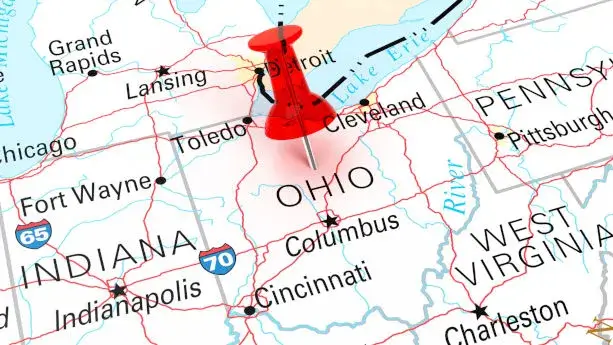
Here are some of the key Ohio-specific regulations and protections related to reverse mortgages:
- Mandatory Counseling: Like the federal requirement for all reverse mortgage application, Ohio law mandates that potential borrowers attend counselling with a HUD-approved counsellor before obtaining a reverse mortgage Ohio. This counselling session informs borrowers about the terms, costs, and potential risks of reverse mortgages.
- Right of Rescission: Ohio law provides a “right of rescission” for reverse mortgage borrowers. This means that borrowers have a three-day window to cancel the reverse mortgage appraisal guidelines without penalty after signing the loan documents. Boosting curb appeal can positively impact the appraisal outcome.
- Counselling Fee Limitations: Ohio law may limit the fees that counsellors can charge for the mandatory counselling session, ensuring that the cost remains reasonable and transparent for borrowers.
- Independent Legal Advice: Ohio law may require that borrowers receive independent legal advice or counselling to ensure they fully understand the implications of the reverse mortgage Ohio contract.
- Interest Rate Caps: Some states, including Ohio, have interest rate caps on purchase reverse mortgages to prevent excessive interest charges that could erode the borrower’s equity too quickly.
- Spousal Protections: Ohio law may include provisions that protect the rights of non-borrowing spouses in case the borrowing spouse passes away or permanently moves out of the home.
- Anti-Churning Protections: Ohio law includes provisions to protect borrowers from “churning,” which refers to repeatedly refinancing a reverse mortgage potential to generate additional fees for lenders. These protections help ensure that lenders act in the borrower’s best interests.
- Prohibition of Cross-Selling: Ohio may have rules prohibiting lenders or brokers from cross-selling other financial products or services in connection with the reverse mortgage transactions to protect borrowers from potential conflicts of interest.
It’s important to remember that regulations and protections can vary from state to state, so Ohio’s specific laws might differ from those in other regions. As reverse mortgages are complex financial products, potential borrowers in Ohio should thoroughly research the local laws and consult with HUD-approved counsellors and legal or financial advisors to fully understand their rights and responsibilities.
Steps to Obtain a Reverse Mortgage Ohio
Obtaining a reverse mortgage Ohio involves several steps, and it’s essential to follow the process carefully to ensure a smooth and informed transaction. Here are the general steps to obtain a reverse mortgage Ohio:
- Educate Yourself: Begin by researching reverse mortgages and understanding how they reverse mortgages work their pros and cons, and their potential impact on your financial situation. Attend informational seminars, read official resources, and consult with financial advisors or HUD-approved counsellors to comprehensively understand the product.
- Eligibility Check: Verify that you meet the eligibility criteria for a reverse mortgage Ohio. In Ohio, you must be at least 62 years old, own your home outright, have a low mortgage balance that can be paid off with the reverse mortgage proceeds, and specify your primary residence as the home. The reverse mortgage appraisal report is a very important element in the loan application that affects the terms and reverse mortgage approval, making it an important part of the reverse mortgage loan process.
- Counselling Session: Schedule a counselling session with a HUD-approved counsellor. This is a mandatory step in the process and is designed to ensure you fully understand a reverse mortgage’s terms and implications. The counsellor will review your financial situation, discuss alternatives, and provide unbiased advice.
- Lender Selection: Research and choose a reputable lender or mortgage company that offers reverse mortgages. Consider their experience in handling reverse mortgages and their terms and fees.
- Reverse Mortgage Application Process: Begin the application process with your chosen lender. You must provide personal and financial information, undergo a financial assessment, and appraise your home to determine its value.
- Underwriting and Approval: The lender will review your application, financial assessment, and reverse mortgage appraisal process results. If everything meets the lender’s criteria, they approve the reverse mortgage program.
- Closing: Once approved, a closing date will be set. You will sign the reverse mortgage process documents at the closing, including the loan agreement and other necessary paperwork.
- Right of Rescission: In Ohio, you have a three-day “right of rescission” period after the closing, during which you can cancel the reverse mortgage without any penalty if you change your mind.
- Disbursement of Funds: After the right of rescission period expires, the lender will disburse the reverse mortgage funds to you, either as a lump sum, a reverse mortgage line of credit, fixed monthly payments, or a combination, based on the payment plan you selected.
- Repayment: As long as you continue to meet the reverse mortgage Ohio requirements, you won’t need to make any monthly mortgage payments. The loan becomes due when the last borrower permanently moves out of the home, sells the home, or passes away. At that time, the reverse mortgage and any accrued interest and fees must be repaid. If the home is sold for more than the loan balance, the excess funds go to you or your heirs.
Remember that reverse mortgages are complex financial products, and taking your time, seeking advice, and thoroughly understanding the terms before proceeding with the application is crucial.
Reverse Mortgage Loan Progression
To truly understand the financial implications of a reverse mortgage over time, it’s beneficial to explore a detailed progression of how the loan balance grows as compared to the home value and remaining equity. By examining such a loan progression table, Ohio residents can gain insights into the balance between accessing their home equity and preserving it for future needs or their heirs. This analysis will illustrate the changes in equity over the years and help homeowners make informed decisions about leveraging a reverse mortgage.
| Year | Home Value | Loan Balance | Equity |
| 1 | $250,000 | $30,000 | $220,000 |
| 5 | $275,000 | $85,000 | $190,000 |
| 10 | $300,000 | $150,000 | $150,000 |
As we’ve seen from the Reverse Mortgage Loan Progression table, a reverse mortgage Ohio can evolve significantly over time due to factors such as accrued interest and changes in home value. For homeowners considering this financial option, it’s crucial to understand how the loan balance might increase and consume a substantial portion of their home equity. A reverse mortgage can be a powerful tool, but it requires careful consideration and planning to align with one’s financial goals and future security.
Alternatives to Reverse Mortgage Ohio
There are several alternatives to reverse mortgages that homeowners aged 62 and older can consider to access their home equity or achieve their financial goals during retirement. Each option has advantages and drawbacks, and the most suitable alternative will depend on individual circumstances and needs.

Here are some common alternatives to reverse mortgages:
- Home Equity Line of Credit (HELOC): A HELOC is a revolving line of credit that allows homeowners to borrow against their home equity. Unlike a reverse mortgage, HELOC obliges borrowers to make monthly payments. HELOCs can be a flexible option for those who want access to funds for specific purposes and can make regular payments.
- Home Equity Loan (HEL): A home equity loan, also known as a second mortgage, allows homeowners to borrow a lump sum against their home equity and repay it over time with fixed monthly payments. Unlike a reverse mortgage, a HEL requires regular repayments, making it suitable for those who prefer a structured payment plan.
- Renting Out a Portion of the Home: Homeowners can consider renting out a part of their home to generate additional income while retaining ownership.
- Traditional Refinancing: Refinancing the existing mortgage can provide access to additional funds or better interest rates. However, traditional refinancing requires meeting income and credit requirements, which may be challenging for some seniors.
- Selling the Home and Renting: Selling and transitioning to a rental property can free up home equity and eliminate ongoing homeownership costs.
- Downsizing: Selling the current home and moving to a smaller or less expensive property can release home equity while potentially reducing housing-related expenses.
- Retirement Savings and Investments: Utilizing retirement savings or investments to supplement income during retirement can be an alternative to tapping into home equity.
- Delayed Social Security Claiming: Delaying Social Security benefits can increase the monthly benefit reverse mortgage amount, providing a more substantial income stream during retirement.
- Family Assistance: Receiving financial support from family members may be an option for some seniors to meet their financial needs without using a reverse mortgage. Some types of manufactured homes may not qualify for reverse mortgage financing, especially those built before 1976, to name a few.
- Government Assistance Programs: Some seniors may qualify for government assistance programs that provide financial support for specific needs, such as housing, healthcare, or other essential expenses.
Before deciding on any alternative, carefully evaluating the associated costs, risks, and benefits is crucial. Consulting with a qualified financial advisor can reverse mortgage help individuals assess the most suitable option based on their unique financial situation and retirement goals. Additionally, exploring multiple alternatives and comparing their features will ensure a well-informed decision.
Finding the Right Reverse Mortgage Ohio Provider
When looking for a reverse mortgage provider in Ohio, it’s important to consider several factors to ensure you select a reliable and suitable lender. Here are some steps and considerations to guide you in your search:
- Local Expertise: Consider choosing a lender with significant experience in Ohio, as they will be more familiar with local housing market conditions and can offer tailored advice.
- Compare Rates and Fees: Shop around and compare the interest rates and fees from multiple lenders. Be sure to ask about the origination fee, mortgage insurance premiums, and any other costs associated with the reverse mortgage.
- Read Reviews and Testimonials: Look for reviews and testimonials from other customers. This can give you insights into the lender’s reliability, customer service quality, and overall customer experience.
- Consult a HUD-Approved Counselor: You must meet with a HUD-approved counselor before applying for a reverse mortgage. This counseling session will help you understand the costs and implications of a reverse mortgage and ensure that it’s a suitable financial decision for you.
- Ask About Payment Options: Different lenders may offer different disbursement options (e.g., lump sum, monthly payments, line of credit). Discuss these options to find the one that best suits your financial situation.
- Legal and Financial Advice: Consult with a financial advisor or an attorney to discuss how a reverse mortgage could impact your estate and financial plans.
By taking these steps, you can better ensure that you find a reverse mortgage provider in Ohio that meets your needs and provides you with the best possible terms.
Top Companies that Reverse Mortgage Ohio
If you are an Ohio homeowner considering a reverse mortgage Ohio, choosing the right lender is a critical step in the process. The top reverse mortgage lenders in Ohio can offer competitive rates, favourable terms, and excellent customer service, making the experience of obtaining a reverse mortgage Ohio smooth and efficient. By understanding the available options, you can confidently embark on this financial endeavour and secure the additional income you need during retirement.
Here is a list of the best reverse mortgage Ohio companies:
- Reverse Mortgage Funding
- Fairway Reverse Mortgage
- Liberty Home Equity
- Mutual of Omaha Mortgage
- Good Life Home Loans
Let’s review the best reverse mortgage Ohio companies in order:
Reverse Mortgage Funding
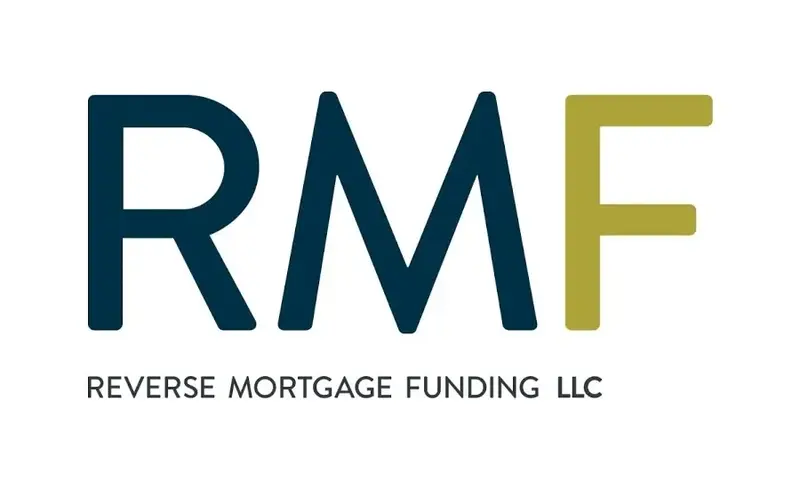
Reverse Mortgage Funding is a mortgage company specializing in reverse mortgages. A reverse mortgage allows homeowners over 62 to pay off a portion of their home’s equity without selling their home or paying a monthly mortgage. Reverse Mortgage Funding LLC offers a variety of reverse mortgage options, including Home Equity Conversion Mortgages (HECM) and proprietary reverse mortgages. The company has a team of experienced loan officers who work closely with homeowners to help them understand their options and make informed financial decisions. Reverse Mortgage Funding LLC is headquartered in New Jersey and operates in many US states.
Reverse Mortgage Ohio with Reverse Mortgage Funding
Reverse Mortgage Funding is a leading lender that offers reverse mortgages Ohio, allowing eligible homeowners to access their home equity without having to make monthly mortgage payments. The company offers a variety of reverse mortgage options, including Home Equity Conversion Mortgages (HECMs), jumbo reverse mortgages, and reverse mortgages for home purchases. Reverse Mortgage Funding LLC is known for its personalized approach, offering customized loan solutions tailored to each borrower’s unique financial situation and needs. They also provide extensive educational resources to help borrowers make informed financial decisions.
To learn more about Reverse Mortgage Funding LLC, you can review this article: Reverse Mortgage Funding LLC
From this link you can visit Reverse Mortgage Funding LLC‘s website: https://www.reversefunding.com/
Reverse Mortgage Funding LLC Phone Number: 888-494-0882
Fairway Reverse Mortgage
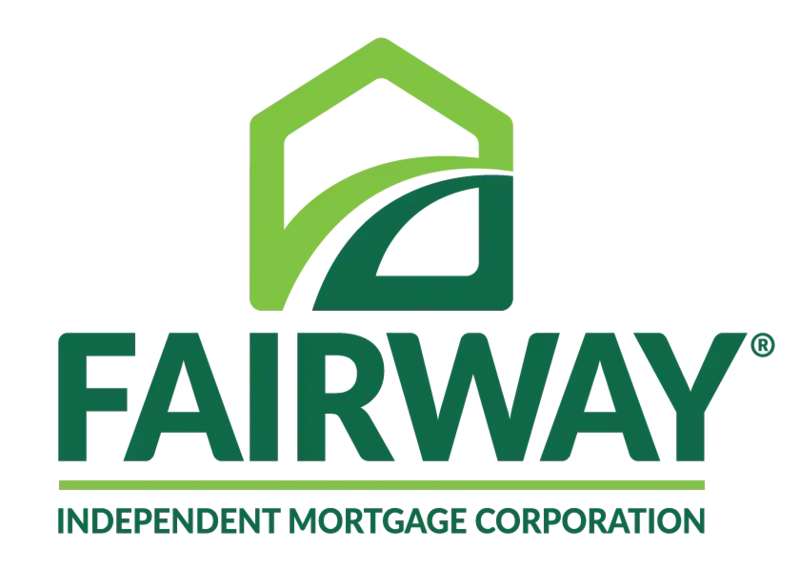
Fairway Reverse Mortgage is a financial services company that provides reverse mortgage loans to eligible seniors. A reverse mortgage is a loan that allows homeowners over the age of 62 to get a share without selling their home or paying a monthly mortgage. Instead, the loan is repaid when the borrower leaves the house, sells the property, or dies.
Fairway Independent Mortgage Corporation offers a variety of reverse mortgage loans, including Federal Housing Administration (FHA)-insured Home Equity Conversion Mortgages (HECMs). They also offer reverse mortgages that are not FHA-insured and have different eligibility and loan terms. The appraiser will also evaluate any repairs necessary to meet the Federal Housing Administration’s minimum property standards.
If you are considering a reverse mortgage, it is important to do your research and speak with a licensed reverse mortgage specialist to understand the terms and conditions of the loan fully. Reverse mortgages can be a valuable financial tool for some seniors, but they are only right for some. It is important to consider all your options and consult with a financial advisor before deciding. For advice tailored to your situation, it is important to consult a reverse mortgage professional who specializes in appraisal issues.
Reverse Mortgage Ohio with Fairway Reverse Mortgage
As I mentioned earlier, Fairway Reverse Mortgage is a nationwide company that provides reverse mortgages to eligible seniors across the United States, including Ohio. Suppose you are a homeowner in Ohio who is 62 or older and interested in accessing a portion of your home equity without selling your home or making monthly mortgage payments. In that case, you may be eligible for a reverse mortgage through Fairway Reverse Mortgage.
A reverse mortgage can pay off an existing mortgage, pay medical bills, remodel a home, or supplement your retirement income. Fairway Reverse Mortgage offers Home Equity Conversion Mortgages (HECMs) and proprietary reverse mortgages to qualified Ohio seniors. HECMs are insured by the Federal Housing Administration (FHA) and have certain eligibility and loan conditions, while proprietary reverse mortgages have different eligibility and loan terms.
It is important to do your research and speak with a licensed reverse mortgage specialist to understand the terms and conditions of the loan fully and to determine if a reverse mortgage is the right financial option for your unique situation.
To learn more about Fairway Reverse Mortgage, you can review this article: Fairway Reverse Mortgage
From this link you can visit Fairway Reverse Mortgage‘s website: https://fairwayreverse.com/
Fairway Reverse Mortgage Phone Number: 844-940-4326
Liberty Home Equity

Liberty Home Equity is a financial product that allows homeowners, particularly those aged 62 and above, to convert a portion of their home’s equity into cash or a line of credit. Unlike traditional home equity loans or lines of credit, Liberty Home Equity is designed for senior homeowners and offers distinct benefits tailored to their unique needs.
Liberty Home Equity provides a compelling financial solution for senior homeowners seeking to enhance their quality of life, meet unexpected expenses, or gain greater financial independence during retirement. By converting a portion of their home’s equity into usable funds, homeowners can confidently navigate life’s financial challenges while continuing to cherish the comforts of their beloved homes. As with any financial decision, homeowners must consult a financial advisor or mortgage specialist to understand all the implications and determine if Liberty Home Equity is the right option.
Reverse Mortgage Ohio with Liberty Home Equity
Liberty Home Equity Solutions offers reverse mortgage solutions to homeowners in Ohio. A reverse mortgage Ohio, also known as a Home Equity Conversion Mortgage (HECM), is a private mortgage that allows homeowners over the age of 62 to access a portion of the equity in their home without having to sell their property or pay a monthly mortgage.
Key Features of Liberty Home Equity reverse mortgage Ohio:
- Eligibility: Homeowners in Ohio who are at least 62 years old and own their primary residence outright or have a significant amount of equity in the property are typically eligible for a Liberty Home Equity reverse mortgage Ohio.
- Access to Funds: With a reverse mortgage Ohio from Liberty Home Equity, eligible homeowners can receive the loan proceeds in various ways, including a lump sum, a line of credit, fixed monthly payments, or a combination of these options. The funds can be used for any purpose, such as covering medical expenses, home improvements, or daily living expenses.
- No Monthly Mortgage Payments: One of the main benefits of a reverse mortgage Ohio is that borrowers are not required to make monthly mortgage payments. Instead, the loan becomes due and payable when the last borrower permanently leaves the home, sells the property, or passes away. As long as the homeowner meets the loan requirements, they can remain in the home without fear of foreclosure due to non-payment.
- Counseling Requirement: To ensure that homeowners fully understand the implications of a reverse mortgage Ohio, HUD (the U.S. Department of Housing and Urban Development) requires borrowers to counsel a HUD-approved reverse mortgage counselor before obtaining a reverse mortgage Ohio.
- Loan Repayment: When the reverse mortgage Ohio becomes due, the homeowner or their heirs can repay the loan by selling the home and using the proceeds to settle the debt. If the home’s value exceeds the loan balance, the homeowner or their heirs will receive the remaining equity. However, if the loan balance exceeds the home’s value, the borrower’s responsibility is limited to the home’s value.
- Non-Recourse Loan: Reverse mortgages, including those offered by Liberty Home Equity, are non-recourse loans, which means the borrower or their heirs will not be personally liable for any loan amount that exceeds the value of the home when it is sold to repay the loan.
Liberty Home Equity‘s reverse mortgage Ohio solution in Ohio offers senior homeowners a valuable financial tool to tap into their home’s equity, providing financial flexibility and security during retirement. Interested homeowners must conduct thorough research and seek guidance from qualified financial advisors or mortgage professionals to determine if a reverse mortgage Ohio is the right option for their financial needs and goals.
To learn more about Liberty Home Equity, you can review this article: Liberty Home Equity
From this link you can visit Liberty Home Equity‘s website: https://libertyreversemortgage.com/
Liberty Home Equity Phone Number: 866.751.2606
Mutual of Omaha Mortgage
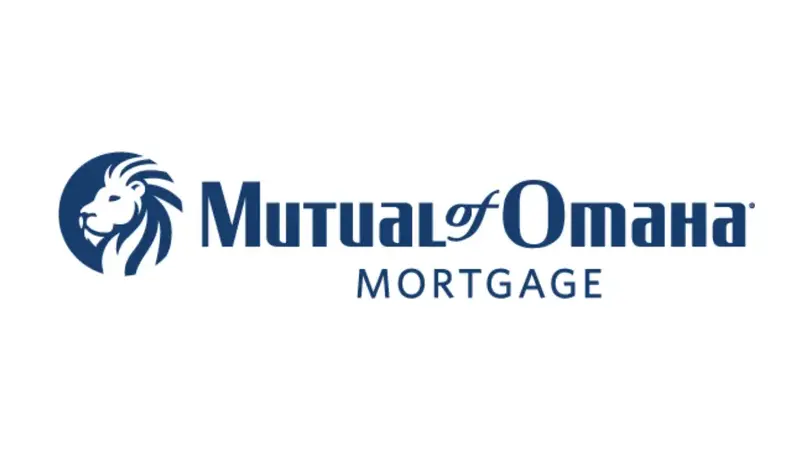
Mutual of Omaha Mortgage is part of the Mutual of Omaha family, a well-respected and trusted financial services provider with over a century of experience. The company’s strength, stability, and integrity heritage translates into its mortgage division, where customers are assured of transparent and ethical practices.
Mutual of Omaha Mortgage is more than just a mortgage lender; it’s a partner dedicated to empowering homeownership for Americans nationwide. The company has become a trusted and reliable name in the mortgage industry with its strong values, personalized approach, and comprehensive range of mortgage solutions. Whether you’re a first-time buyer or looking to refinance, Mutual of Omaha Mortgage stands ready to guide you on your path to homeownership with unwavering support and expertise.
Reverse Mortgage Ohio with Mutual of Omaha Mortgage
Mutual of Omaha Mortgage has earned a stellar reputation for its commitment to serving the needs of seniors across the United States, including Ohio. With a focus on honesty, integrity, and customer-centric practices, the company is dedicated to providing financial solutions that support retirees in achieving a more secure and enjoyable retirement.
Advantages of a Mutual of Omaha Mortgage reverse mortgage Ohio:
- Financial Flexibility: Ohio seniors can use the funds from a reverse mortgage Ohio to supplement their retirement income, cover medical expenses, pay off existing debts, or embark on new adventures. Money can be used for any purpose without restriction.
- No Monthly Mortgage Payments: One of the most significant benefits of a reverse mortgage Ohio is that borrowers are not required to make monthly payments. This can greatly alleviate financial burdens during retirement.
- Homeownership Retention: With a Mutual of Omaha Mortgage reverse mortgage Ohio, homeowners in Ohio retain ownership of their property. They can continue to live in the home and enjoy the benefits of homeownership while also accessing the equity they have accumulated over the years.
- Government-Insured Protection: Mutual of Omaha Mortgage offers Home Equity Conversion Mortgage (HECM) reverse mortgages insured by the Federal Housing Administration (FHA). This ensures that borrowers are protected and guarantees they will continue receiving payments even if the lender faces financial challenges.
- Flexible Payout Options: Seniors in Ohio can choose from various payout options, such as a lump sum, monthly installments, a reverse mortgage line of credit, or a combination of these, based on their financial needs and preferences.
Mutual of Omaha Mortgage‘s reverse mortgages provides a pathway to financial freedom for Ohio seniors, offering the chance to tap into the equity of their homes while still retaining ownership. With its dedication to customer service and unwavering support, Mutual of Omaha Mortgage is a reliable partner for seniors seeking a secure and comfortable retirement. If you’re an Ohio homeowner aged 62 or older, exploring the benefits of a reverse mortgage Ohio could be a wise step toward unlocking the full potential of your retirement years.
To learn more about Mutual of Omaha Mortgage, you can review this article: Mutual of Omaha Mortgage
From this link you can visit Mutual of Omaha Mortgage‘s website: https://mutualreverse.com/
Mutual of Omaha Mortgage Phone Number: (800) 578-0283
Good Life Home Loans
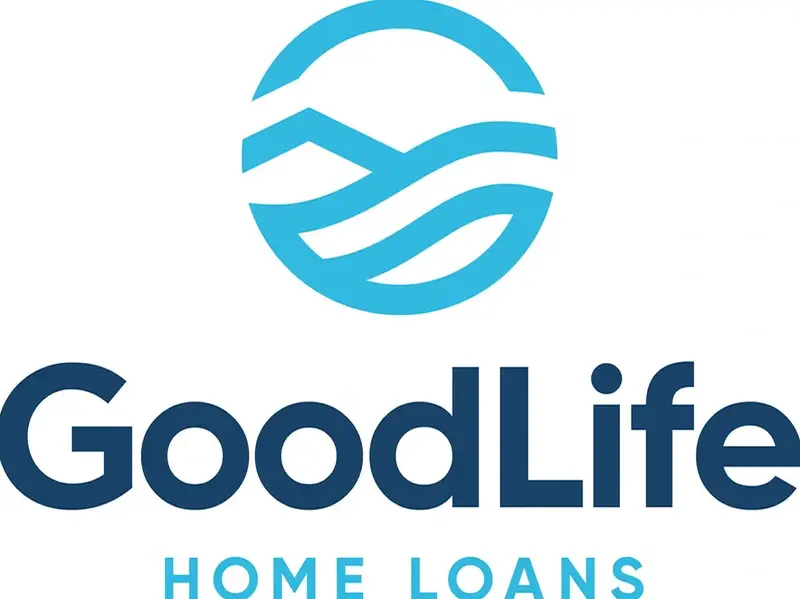
Good Life Home Loans is not just another lending institution; it’s a trusted partner committed to your financial well-being. With a reputation for excellence and personalized service, they stand out in the competitive home loan market. Whether you’re a first-time homebuyer or looking to refinance an existing property, Good Life Home Loans has tailored solutions to meet your unique needs.
At Good Life Home Loans, they understand that no two individuals or families are alike. That’s why they offer diverse loan options to suit various financial situations and goals. From fixed-rate mortgages to adjustable-rate mortgages (ARMs) and government-backed loans like FHA and VA loans, they can help you find the perfect fit for your circumstances.
Reverse Mortgage Ohio with Good Life Home Loans
Good Life Home Loans offers reverse mortgages Ohio. A reverse mortgage Ohio allows eligible homeowners over 62 to pay off a portion of their home without selling, giving up the title, or making monthly mortgage payments. Instead, the loan is repaid when the borrower no longer uses the house as his primary residence.
Good Life Home Loans offers two types of reverse mortgages Ohio: Home Equity Conversion Mortgages (HECMs) and Jumbo Reverse Mortgages. HECMs are federally-insured reverse mortgages with a maximum loan limit set by the government. On the other hand, Jumbo reverse mortgages are private loans that allow eligible borrowers to access more home equity than a HECM. It’s important for homeowners to carefully consider the pros and cons before applying for a reverse mortgage Ohio. Good Life Home Loans provides detailed information on Ohio reverse mortgages to help borrowers determine if they are the right option for their unique financial situation.
To learn more about Good Life Home Loans, you can review this article: Good Life Home Loans
From this link you can visit Good Life Home Loans‘s website: https://goodlifehomeloans.com/
Good Life Home Loans Phone Number: 1-866-868-0928
Conclusion
A reverse mortgage Ohio can be a powerful tool for Ohio seniors to supplement their retirement income or cover unexpected expenses. However, it’s important to carefully weigh the pros and cons before deciding whether a reverse mortgage Ohio is right for you. By understanding the eligibility requirements, pros and cons of this type of loan, you can decide whether it is the best choice for your unique financial situation. If you want a reverse mortgage Ohio, working with a reputable lender who can guide you through the process and answer all your questions is important.
Reverse Mortgage Ohio FAQ
When considering a reverse mortgage Ohio, gathering accurate information is essential to make an informed decision. This financial arrangement allows homeowners aged 62 and older to convert part of their home equity into cash, potentially providing a more comfortable retirement. Our FAQ addresses common questions and concerns, helping Ohio residents understand the key aspects of reverse mortgages, including eligibility requirements, financial implications, and the application process. This section will guide you through the essential information to determine if a reverse mortgage Ohio is right for you.
Are there any upfront costs associated with obtaining a reverse mortgage in Ohio?
Origination Fee: This fee covers the lender’s processing costs and can be up to 2% of the first $200,000 of the home’s value and 1% of the remaining value, with a cap of $6,000.
Mortgage Insurance Premium (MIP): Borrowers must pay an upfront MIP, typically 2% of the home’s appraised value or the FHA lending limit for their area, whichever is less.
Closing Costs: These are fees for various services, such as the home appraisal value, title search, recording fees, and other necessary expenses related to the loan.
Third-Party Charges: There may be additional costs for services provided by third parties, such as credit checks or counseling fees.
How much money can I borrow with a reverse mortgage in Ohio?
The amount of money you can borrow with a reverse mortgage Ohio depends on factors such as your age, home value, current interest rates, and the type of reverse mortgage you choose. Generally, the older you are and the higher your home’s value, the more you may be eligible to borrow. However, a maximum lending limit set by the FHA applies to most reverse mortgages. Contact a reverse mortgage lender or housing counselor to get an accurate estimate.
Can I lose my home with a reverse mortgage in Ohio?
Yes, you can lose your home with a reverse mortgage Ohio if you do not meet certain obligations, such as paying property taxes, maintaining the home, or meeting other loan requirements.
How will a reverse mortgage affect my heirs?
A reverse mortgage can affect your heirs by reducing the inheritance they receive, as the loan balance may increase over time, and the home equity could be used to repay the loan. However, the heirs are protected by the non-recourse feature, meaning they won’t owe more than the home’s value, and they have options to keep or sell the home to settle the loan.
Are there any protections for reverse mortgage borrowers in Ohio?
Yes, there are protections for reverse mortgage borrowers in Ohio, including mandatory counseling, non-recourse loan feature, right of rescission, limits on fees, and mandatory disclosures.
